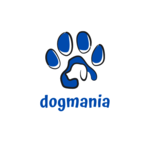Protein Power: Understanding the Role
of Protein in Your Dog's Diet and
Debunking Myths
Protein is a crucial component of your dog's diet, playing a vital role in maintaining their overall health and well-being. However, there are many misconceptions surrounding protein in canine nutrition. In this article, we'll delve into the importance of protein, its role in your dog's diet, and debunk common myths surrounding this essential nutrient.
The Importance of Protein in Your Dog's Diet:
Protein is often referred to as the building blocks of life, and for good reason. In your dog's diet, protein serves several key functions. Firstly, it provides the essential amino acids necessary for the growth and repair of tissues, including muscles, organs, skin, and hair. Without an adequate intake of protein, your dog may experience stunted growth, poor muscle development, and a weakened immune system.
Protein also plays a crucial role in supporting various metabolic processes within your dog's body. It helps regulate enzyme activity, hormone production, and immune function, ensuring that your dog's body functions optimally. Additionally, protein provides a source of energy, albeit less efficient than carbohydrates or fats, helping to fuel your dog's daily activities.
Understanding Protein Requirements for Dogs:
The protein requirements for dogs vary depending on factors such as age, size, breed, activity level, and overall health. Puppies, for example, require higher levels of protein to support their rapid growth and development, while senior dogs may have lower protein requirements but still need sufficient protein for muscle maintenance and repair.
As a general guideline, most adult dogs require a diet that consists of at least 18-25% protein on a dry matter basis. Working dogs or highly active breeds may benefit from diets with slightly higher protein content to support their energy needs and muscle recovery. However, it's essential to consult with your veterinarian to determine the specific protein requirements for your dog based on their individual needs.
Debunking Common Myths About Protein in Dog Nutrition:
1. Myth: High-protein diets are harmful to dogs, leading to kidney damage.
Fact: While excessive protein intake may pose a risk to dogs with pre-existing kidney issues, there is no evidence to suggest that high-protein diets cause kidney damage in healthy dogs. In fact, protein is essential for maintaining muscle mass and supporting overall health in dogs of all ages.
2. Myth: Plant-based proteins are inferior to animal-based proteins for dogs.
Fact: While animal-based proteins are considered complete proteins, meaning they contain all essential amino acids, many plant-based proteins can also provide adequate nutrition for dogs. Ingredients such as soy, peas, and lentils can be valuable sources of protein in commercial dog foods, especially for dogs with food sensitivities or allergies.
3. Myth: Dogs need raw meat to meet their protein requirements.
Fact: While raw diets have gained popularity in recent years, they come with potential risks such as bacterial contamination and nutritional imbalances. Cooked, commercially prepared dog foods are formulated to provide complete and balanced nutrition, including adequate levels of protein, without the need for raw meat.
conclusion
Protein is an essential nutrient in your dog's diet, playing a vital role in their growth, development, and overall health. By understanding the importance of protein and debunking common myths surrounding its role in canine nutrition, you can ensure that your dog receives the nutrition they need to thrive. Remember to consult with your veterinarian to determine the appropriate protein requirements for your dog based on their individual needs and circumstances. With a balanced diet that includes sufficient protein, your furry friend can enjoy a healthy and happy life by your side.



leave me your thoughts here